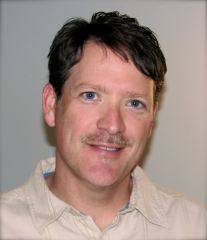Today, there are about 2.2 billion Christians in the world, with a billion or so Catholics and Protestants in each group. The Orthodox, Anglican and other independent communities of faith round out the total. Among Protestants, there are about three dozen different traditions: Baptists, Lutherans, Methodists, and Reformed to name a few. And then within these major traditions, there are more than 30,000 individual groups or denominations.
It hasn’t always been like this. A thousand years ago there was only one church: The Catholic Church. Five hundred years ago, after the “Great Schism, there were two: The Orthodox in the East and the Roman Catholicism in Western Europe. The prolific fragmentation over the last several centuries was the result of the Protestant Reformation, now celebrating its 500th anniversary.
The Reformation, the movement that has shaped me most, didn’t really begin as a theological campaign. It began as a living illustration of Lord Acton’s proverb: “Power tends to corrupt, and absolute power corrupts absolutely.” Christendom, unrivaled with its strength, had descended into abusive, greedy, manipulative, war-mongering, paranoid totalitarianism.
Thus, on October 31, 1517, a contrary but unremarkable Catholic monk in the village of Wittenberg, Germany nailed a treatise to the front door of his local church. It was a list of nearly one hundred points of issue he had with the establishment. That German monk’s name was Martin Luther, that treatise was his “Ninety-Five Theses,” and the movement that he unwittingly launched became the Protestant Reformation.
But this critique of Christendom, which began as an inquiry into financial fraud, quickly became a question of authority. The protestors, with their evolving views of Scripture and personal conscience, would not submit themselves any longer to a sanctified form of unscrupulous monarchy.
These ideas have marked the Western world (noting the obvious, our own country was forged in the fires of rebellion), and we all – Protestants, Catholics, Orthodox, Anglicans, and atheists alike — “doth protest much, me thinks.” We chafe at power-grabbing, howl over money-grubbing, and object to violations of conscience — whether these be at the Vatican, by the local Baptist church, or in the statehouse.
And we should, for protesting against the forms of authoritarianism, and working to reform them, are not Protestant, Western, or American principles. These are human ideals. Paraphrasing the late Reverend Hershel Hobbs, he said that humanity’s greatest dignity is freedom, and no organization should “fasten its iron grip upon” a person’s conscience. “This is the worst of all tyrannies,” he said, “for God made humanity to be free.”
So if you are one who feels that we can and should do better; that corruption of all shades should be named and resisted; that all people should enjoy liberty and be able to lead individual lives of fulfillment; that faith can be lived without coercive interference; and that organizations, churches, institutions, and people who violate conscience should be peacefully — but emphatically — refused, then join me at the Wittenberg door. There’s plenty of reforming left to do.
Ronnie McBrayer is a syndicated columnist, blogger, pastor, and author of multiple books. Visit his website at www.ronniemcbrayer.org.


